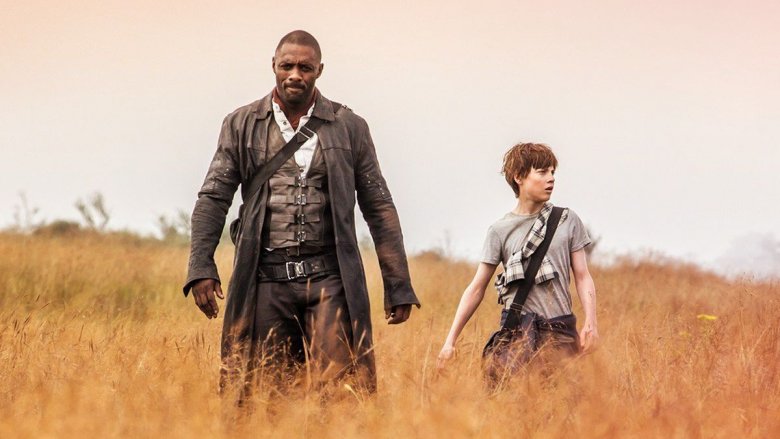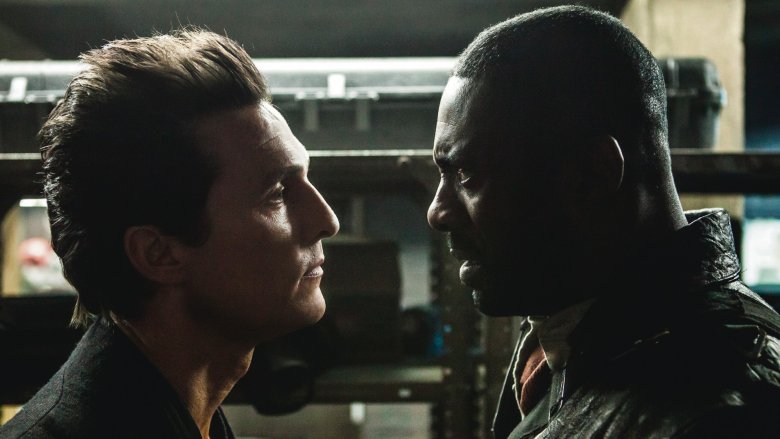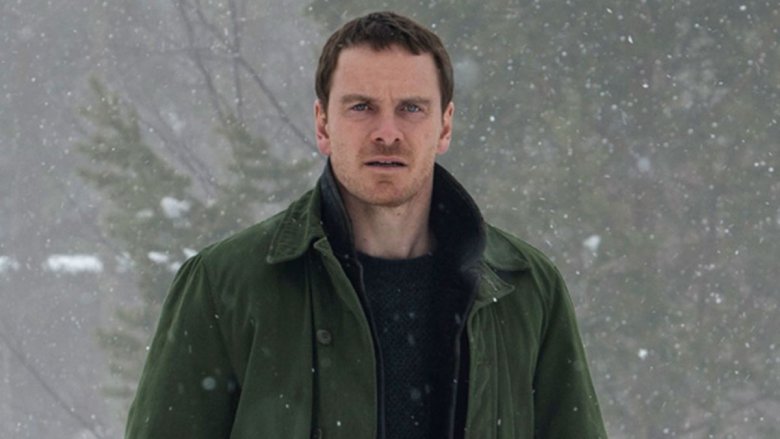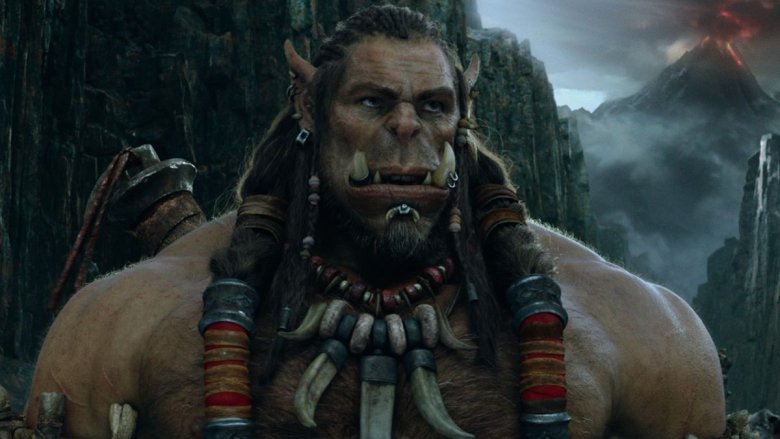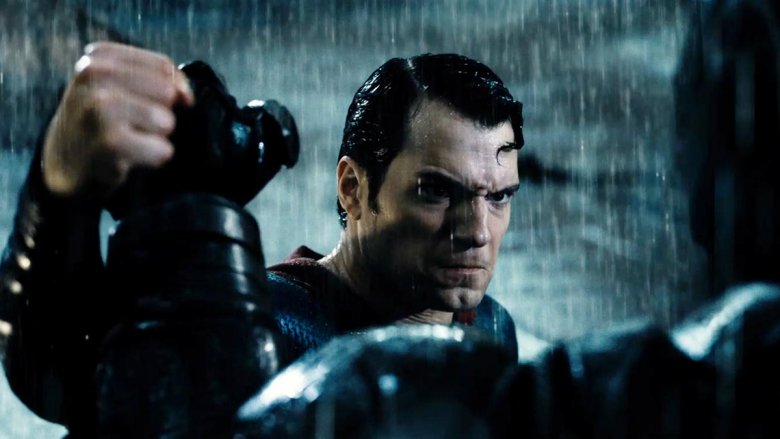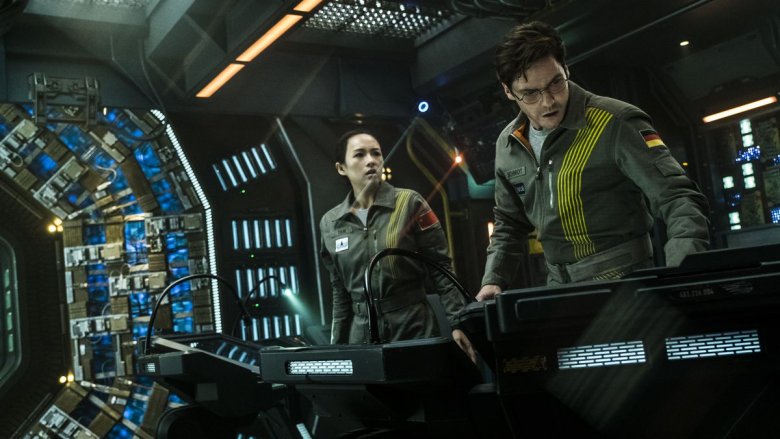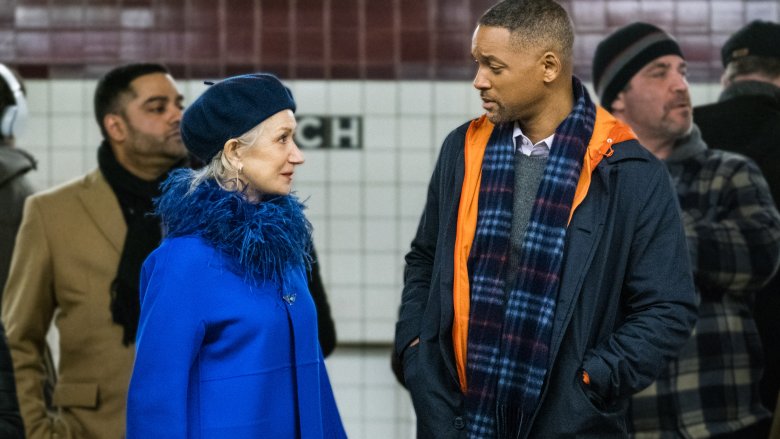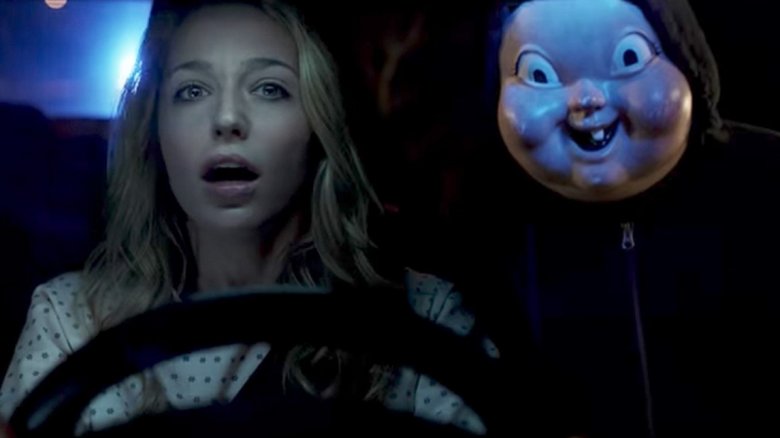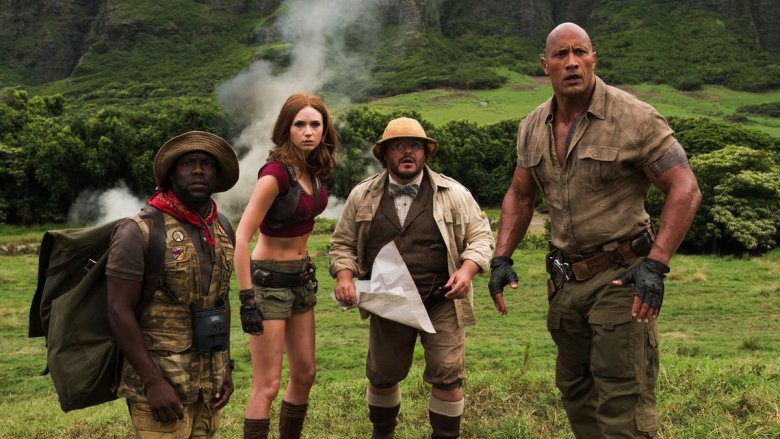First Reactions To Big Movies That Surprised Us All
There's still plenty of debate over whether movie reviews have much of an impact on box office grosses, but even if the approval of the critics isn't strictly necessary for a film to achieve commercial success, earning positive reviews has still got to feel good for the people involved in the project — and often, the opinions of professional pundits can serve as the first sign of a movie's eventual fate.
It's often pretty easy to guess which way the critics will lean regarding any given release — if it's a thoughtful awards-season drama, you can probably expect it to be Certified Fresh at Rotten Tomatoes within a few weeks of its first screening, and if it's an Adam Sandler comedy, well, the results probably won't be pretty. But every so often, a movie comes along that surprises us — either it looked for all the world like a critical hit only to flame out with film scribes, or it gave off the whiff of a critical dog and ended up premiering to applause. These recent releases looked like they were going one way, but for better or worse, they confounded expectations — here's a look at first reactions to big movies that surprised us all.
An adaptation not fit for a King
After years of hemming and hawing, Hollywood finally gave Stephen King's Dark Tower series the adaptation treatment in 2017. There were reasons to believe the long-awaited film might be troubled long before it hit theaters, of course: Akiva Goldsman's script would operate as a pseudo-sequel to the series concerned many long-time fans, and the many studio and creative shake-ups that preceded its arrival at Sony Pictures were foreboding as well. Even the brief runtime raised red flags.
However, mega-stars Matthew McConaughey and Idris Elba signed on to star and earned the author's blessing to portray the famed Man in the Black and the Gunslinger on their epic chase, and there was a lot of pre-release hype. Alarm bells really began to sound, however, once the first wave of reactions from critics came through shortly before the release, and even those who'd been anticipating the picture roundly condemned it as "deeply flawed," filled with "listless and muddled action sequences," and otherwise "flat [and] uninteresting." The film was ultimately greeted with negative reviews and bombed at the box office — a stunning result for such a long-awaited adaptation of such beloved source material.
A frosty reception
Despite the chuckle-inducing name of its central character — Detective Harry Hole, portrayed by Michael Fassbender — Tomas Alfredson's adaptation of Jo Nesbø's popular mystery novel The Snowman seemed off to a good start when the film's first trailer dropped. Between the stunning wintry landscapes of its Swedish locale, the ominous soundtrack that an air of mystery, and the talented cast (including J.K. Simmons, Chloe Sevigny, Rebecca Ferguson, Charlotte Gainsbourg, and Toby Jones, to name a few), the movie seemed like it might offer something special for fans of slow-burn suspense thrillers.
Unfortunately, whatever momentum might have existed early on melted away shortly before the film's release thanks to terrible initial reviews that pegged it as "unimaginative," fit with a "cast shar[ing] zero screen chemistry" and "disparate" storytelling. Even before it hit theaters in the U.S. (and crashed and burned at the box office) the director blamed a rushed production schedule for the film's terrible reception, claiming that a large chunk of the script was never filmed due to time constraints. The movie became such a laughingstock that even its poster campaign became a point of hilarity, giving rise to a major meme that ensured no one would ever look at a child's snowman drawing the same way again.
More like Borecraft
Few video game properties have ever been as successful as The World of Warcraft. The role-playing game was released in 2004 to overwhelmingly positive reviews and record-breaking player subscription rates. Thanks to its popularity and massive worldbuilding potential, a film adaptation was announced by Blizzard Entertainment in 2006, but the project spent several years stalled out in pre-production limbo as the details of the project were ironed out, and original director Sam Raimi stepped aside, leaving Duncan Jones of Moon and Source Code acclaim to sign on to helm the feature.
Given Jones' credentials and commitment to developing the script, fans had a lot of reason to hope this long-overdue movie might bring their epic virtual world to silver screen fruition. After a decade of anticipation, the film dropped in 2016 — and was met with a massive critical groan that compared the end results to an iPhone app commercial, with cinematography that looked "artificial" and costume elements that appeared "phony and cheap." For a film with a $160 million production price tag, those rebukes were nothing short of jaw-dropping — and Jones' critical woes continued with his passion project Mute, which was similarly rebuffed.
Batman v Superman v critics
Although Man of Steel was hardly a critical darling, it made enough at the box office to justify Warner Bros. continuing forward with the DC Extended Universe, leading to Henry Cavill returning for Batman v. Superman: Dawn of Justice alongside Ben Affleck as Bruce Wayne. The film, which would finally bring the Big Blue Boyscout and the Caped Crusader together in the same movie — with Wonder Woman, no less! — was one of the most talked-about properties of its time.
Unfortunately, some of that pre-release chatter wasn't exactly positive. Thanks to reshoots, a ballooning budget, rumors about the potential reduction of Superman's screen time, and insider information about the studio's concerns, there were certainly causes for concern. Still, it was something of a shock when the social media embargo lifted and some of the earliest reactions to the film claimed it had "no coherence," was "a bore," and was "bloated, unfocused, and dull." The movie still turned a profit — and justified extending the DCEU to include films like Suicide Squad and Justice League, which were far less surprising when similarly scorned.
Over for Clover
After 10 Cloverfield Lane managed to revive a long-dormant sci-fi property by slightly tinkering with an unrelated script to tie it into the Cloverfield universe, the possibilities for the franchise seemed endless. The movie was only loosely related to the original found-footage film and still worked as a compelling thriller, so when another standalone script called The God Particle was scooped up by J.J. Abrams' production company for similar reconfiguration, there was a lot of reason for fans to be excited.
Multiple release delays and a cloud of mystery surrounding the plot may have hampered some expectations, but a clever viral campaign also helped to increase anticipation for the third Cloverfield movie — all the way up to Netflix's surprise announcement that the film would be released immediately following the 2018 Super Bowl. Despite the novel marketing, however, the movie was slammed by critics, who called it "like a dull TV pilot," "a staggeringly bad movie," and a "trainwreck of a sci-fi flick." For fans hoping for another 10 Cloverfield Lane surprise, the results were severely disappointing.
Tangled up in boo
Universal Pictures had a lot riding on its reboot of The Mummy franchise — an entire shared film universe, in fact. The Tom Cruise-led monster movie was supposed to mark the start of the studio's Dark Universe franchise, with properties like Frankenstein, The Invisible Man, The Wolfman and others expected to follow, and an A-list cast including Johnny Depp and Javier Bardem already on tap. As a result, there was a lot of hype leading up to The Mummy's release, including a heavy promotional focus on Cruise's latest daredevil stunts. Considering how well the studio did with the franchise when Brendan Fraser was in the lead — with all three films crossing the $100 million mark domestically — the stars seemed aligned.
The earliest round of reviews, however, didn't treat the picture kindly at all. Critics called it everything from "the worst Tom Cruise movie ever" (quite a statement, considering the lashing Cocktail took) to an "epic monster mess." The film couldn't even recoup its production budget in U.S. ticket sales and had to rely on international markets to make up the difference, which means not only was The Mummy dead on arrival, but the entire Dark Universe was buried.
Collateral damage
It wasn't so long ago that Will Smith simply couldn't miss. Whether he was making CGI-heavy movies about the future, cheesy romantic comedies, or family films, he was a consistent moneymaker. Sure, he's had some missteps along the way, but with his proven box office draw and highly respected co-stars like Helen Mirren, Kate Winslet, and Edward Norton on board for a film directed by David Frankel (The Devil Wears Prada, Marley & Me), Collateral Beauty seemed like a promising tearjerker.
Even Smith's skeptics had to be surprised, then, when the film received an epic critical drubbing out of the gate after faring well in test screenings. Variety called it a "big soppy whimsical lump-in-the-throat commercial version of a drama of parental grief," and The New York Times deemed it a "waste of talent and time." If this was meant to be Smith's second effort at an Oscar run after being snubbed for Concussion, it was a colossal misstep.
Dying for great reviews
2017 was a good year for horror films in general, but the success of Happy Death Day still came as something of a surprise. The film had almost no pre-trailer buzz, and even when its first marketing materials were released, sites were quick to note the derivative nature of its apparent plot, pointing to its obvious similarities to the early '90s comedy classic Groundhog Day.
It was exactly that fealty to the feel-good favorite that would later prove to be a point of praise for the film, which released to widely positive reviews and eventual plans for a sequel. Happy Death Day was regarded as "just clever enough" to make its schtick stick and "maintain[ing] a breezy momentum," despite so many scenes of slash-and-dashing its protagonist. If the fact that Happy Death Day's Tomatometer score is just a hair shy of Forrest Gump wasn't astonishing enough, then the film's mega-return on investment at the box office is still truly staggering.
You're down in the jungle, baby...you're gonna make a ton of money
Perhaps no film has ever enjoyed a theatrical run as unique as Jumanji: Welcome to the Jungle, which revived the board game adventure of the original with a modern video game bent and Dwayne "The Rock" Johnson on board to add blockbuster mojo. The movie opened to soft numbers on its opening weekend, but enjoyed a more than 500% uptick in receipts the following weekend, despite reviews that were only so-so: The New York Times accused the film of betraying a "desperation to connect" to the original property, IndieWire called it just "mildly amusing," and Entertainment Weekly faulted it for making the first installment "look like a beloved cinema classic."
Audiences, however, begged to differ, and gave the film much higher marks — and turned out to the tune of nearly $1 billion. Thanks to the film's unlikely dominion over the winter box office, a sequel was immediately ordered up and slated for another December release, hoping to recapture some of that unexpected moneymaking magic that followed the first film's release.
